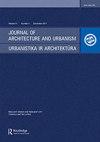THE SPATIAL CONCEPTS OF CULTURAL HERITAGE VILLAGE TOWARD A TOURISM DEVELOPMENT; A CASE STUDY OF KADILANGU DEMAK INDONESIA
IF 0.8
0 ARCHITECTURE
引用次数: 7
Abstract
Globalization perspective considers the world as a large market, which requires the resources readiness as capital to be able to participate actively. Local culture is an important capital to create identity and social harmonization in constructing a better quality of life. In the 15th–16th century AD, the Java north coast of Indonesia was known for having several old towns with their important roles in spreading Islam. Centuries later the legend of Walisanga still greatly influences the people’s lives particularly in Demak. The Muslim community is living tradition in this area has become one of the identity of the city. The development in the last decades has shown significant impacts on the tourism sector. This phenomenon showed that there would be conflicts of interests between social-cultural sectors and economic sectors. In this kind of situation, the community must adapt spatial settings to accommodate their needs. The purpose of this article is to find the concept of spatial setting formed by economic, cultural and religious factors in this historical area. The locus is the Muslim settlements in Kadilangu Demak a site of Sunan Kalijaga’s heritage. This study that employed qualitative research methods, the three spatial concepts proposed are: (1) the identity space of local culture is strongly exists (2) the shift in the value of space, which has changed from the glory of the noble family tothe common people (3) the space for morality control, which functions as the control of community’s moral. The third concepts are local genius, which is significantly potential for tourism.面向旅游开发的文化遗产村空间理念以印尼卡迪兰古为例
全球化的观点认为世界是一个大市场,这需要资源准备作为资本能够积极参与。地方文化是创造身份认同和社会和谐、构建更好生活质量的重要资本。在公元15 - 16世纪,印尼爪哇北部海岸以拥有几个古老的城镇而闻名,这些城镇在传播伊斯兰教方面发挥了重要作用。几个世纪后,Walisanga的传说仍然极大地影响着人们的生活,特别是在丹麦。穆斯林社区的传统生活已经成为这个地区的城市身份之一。过去几十年的发展对旅游业产生了重大影响。这一现象表明,社会文化部门与经济部门之间存在利益冲突。在这种情况下,社区必须调整空间设置来满足他们的需求。本文的目的是寻找经济、文化和宗教因素在这一历史区域形成的空间设置概念。地点是Kadilangu Demak的穆斯林定居点,这是Sunan Kalijaga的遗产遗址。本研究采用定性研究的方法,提出了三个空间概念:(1)地方文化身份空间的强烈存在;(2)空间价值的转移,从贵族家庭的荣耀转变为平民的荣耀;(3)道德控制空间,起着控制社区道德的作用。第三个概念是本地天才,这对旅游业有很大的潜力。
本文章由计算机程序翻译,如有差异,请以英文原文为准。
求助全文
约1分钟内获得全文
求助全文
来源期刊

Journal of Architecture and Urbanism
ARCHITECTURE-
CiteScore
1.30
自引率
14.30%
发文量
12
审稿时长
15 weeks
期刊介绍:
The Journal of Architecture and Urbanism publishes original research on all aspects of urban architecture.
 求助内容:
求助内容: 应助结果提醒方式:
应助结果提醒方式:


